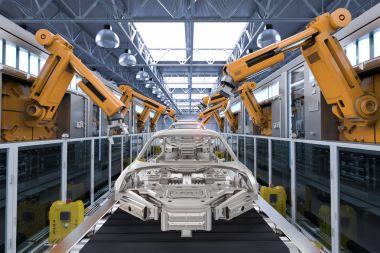As reported by Qodenext in their article, “The Guide to Innovation in Automotive Conveyor Systems for Efficient Production Lines,” conveyor belts play a critical role in the automotive industry by streamlining processes and ensuring high efficiency in production. Recent innovations in automotive conveyor systems have reshaped how car manufacturers manage multi-channel inventory and production workflows.
Automotive conveyor systems have evolved significantly, incorporating new technologies to meet the demands of modern vehicle production. Whether it’s through roller conveyors that efficiently transport heavy materials like aluminum sheets or overhead systems that maximize warehouse space, the automotive industry depends on these advanced conveyor systems for smooth operations.
In terms of versatility, belt conveyors remain a popular choice in production facilities due to their simple yet robust design. Chain conveyors, too, are widely used, especially in assembly and manufacturing processes, owing to their strength and durability.
Three major trends are currently revolutionizing the automotive conveyor industry:
- Automation: Automated guided vehicles (AGVs) and autonomous mobile robots (AMRs) are used alongside conveyor systems, powered by artificial intelligence. This eliminates human intervention for routine tasks, thereby enhancing operational efficiency.
- Modular Systems: These allow for adaptable production lines with easily reconfigurable components, minimizing downtime and providing flexibility to accommodate changing manufacturing needs.
- Smart Conveyors: The incorporation of IoT, sensors, and RFID tags has enabled real-time monitoring, predictive maintenance, and data analytics, leading to more efficient conveyor systems.
Click here to learn more about May Conveyor’s belting solutions.
Article with all rights reserved, courtesy of qodenext.com.








